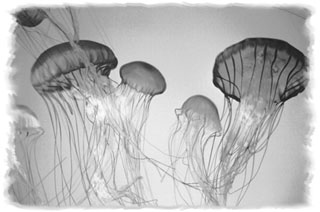MULTIPLE
INTELLIGENCE THEORY
TEACHING
ACROSS THE CURRICULUM
Harvard
psychologist and educator, Howard Gardner, revolutionized the way
we think about intelligence and creativity with his multiple intelligence
theory.
Application
The theory of multiple intelligences gives us a excellent tool for
conducting learning experiences in any discipline. It is also an
excellent approach to adapting activities and lesson plans that
will reach the many different learning styles of your students.
Sources
Howard Gardner's 1999 book Intelligence Reframed, Multiple Intelligences
for the 21st Century (Basic Books, New York), presents an overview
of his original 7 multiple intelligences as well as introduces three
new ones. Much has been written about multiple intelligence theory
and this module will not attempt to be a comprehensive review. Links
are provided at the end of this discussion to some of the many web
sites covering this material.
Below
is an introductory discussion of the intelligences. Activities throughout
the module will show you how to adapt activities for each one.
Linguistic
Intelligence
Sensitivity to spoken and written language; the ability to learn
language; the capacity to use language to accomplish goals.
Communicating with computers and spacecraft
is an excellent way to exercise this intelligence.
Logical
Intelligence
the
capacity to analyze problems logically; do mathematical operations;
investigate issues scientifically
Problem solving taps into this intelligence.
|
Linguistic
and Logical intelligences area those that have been typically
most valued in school. Most tests assume that the student
is proficient in these intelligences and they are found strongly
in lawyers, writers, poets, and scientists.
|
Musical
Intelligence
Skills in the appreciation, performance, or composition of musical
patterns. Parallels linguistic intelligence.
The patterns in the
universe have been likened by many to musical scores (such as Johannes
Kepler, the discoverer of the orbital structure of our Solar
System, who postulated a "Music of the Spheres." Many
scientists are deeply into music.
Body-kinesthetic
Intelligence
The potential of using one's whole body or parts of the body
to solve problems or create products.
Important not only for athletes, but for
research scientists, craftspeople, mechanics and other technicians.
Creating activities that involve movement result in a deep, long
remembered learning experience.
Spatial
Intelligence
The potential to recognize and manipulate patterns of wide open
space (like pilots and navigators) as well as smaller spaces (like
surgeons, architects and sculptors).
Navigating
a spacecraft in Earth orbit or to other worlds makes dramatic use
of this intelligence.
Interpersonal
Intelligence
The capacity to understand the intentions, motivations, and desires
of others (such as is prominent in teachers, political leaders,
salespeople, and actors).
Astronauts
must have a high capacity for this intelligence. Also, working on
large aerospace projects involves this intelligence. All students
of all ages need experience in this attribute to function in society.
Intrapersonal
Intelligence
The capacity to understand oneself and to know one's own desires,
fears and abilities and to use the information effectively.
Important
for everyone.
 Naturalist
Intelligence
Naturalist
Intelligence
Expertise in recognizing and classifying many species; extensive
knowledge of the living world; talent for interacting subtly with
various living creatures.
Helping
our students feel more connected to the natural world is an important
foundation for life. Studying the other planets can provide a powerful
appreciation for the Earth.
 Spiritual
Intelligence
Spiritual
Intelligence
The potential to explore the nature of existence (Cosmologists,
religious leaders, philosophers).
The
study of the cosmos creates a fertile ground for such questions
as "how did it all begin."
 Existential
Intelligence
Existential
Intelligence
The capacity to locate oneself with respect to the furthest reaches
of the cosmos and the related capacity to locate oneself with respect
to such concepts as the significance of life, the meaning of death,
the fate of worlds, love of another, or immersion in art.
The
study of the universe provides a context for considering questions
such as "why are we here" and "are we alone"
and "what is the meaning of life."